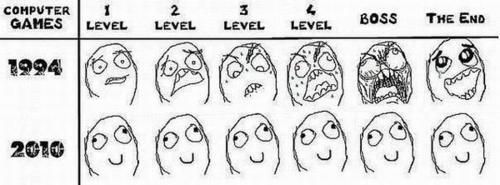If you played video games back in the '80s and early '90s, then you know what “hard” really is. Many of the old NES games didn’t even have multiple difficulties—they just had one, and it was brutal. Remember those impossible jumps in Super Mario Bros. that took hours of practice to master? Or the endless obstacle course of bullets that you had to wade through in Contra, when one hit meant instant death? And of course there’s always the infamous jet bike level from Battletoads…
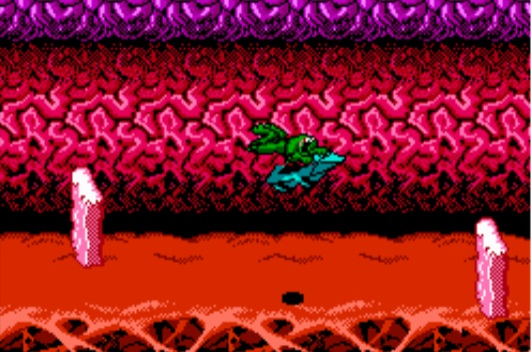
No doubt about it, they just made games harder back then. Even “easy mode”, on the games that offered it, was often a lot tougher than normal difficulty in modern games today. Of course, that’s not to say that there aren’t hard games out there now. Every now and then, we see a nice change of pace in games that add a truly hard difficulty level, such as the God, Titan, and Chaos modes in the God of War series or “Dante Must Die” in DMC.
And once in a rare while, a game comes along that’s just hard no matter how you play it, like the under-exposed but wickedly awesome Ikaruga or the die-a-million-deaths Demon's Souls. These gems definitely hearken back to the old school games that tested a player’s skill to the limit, and players like me are thankful for it. But all of these examples are, as the saying goes, the exceptions that prove the rule. 20 years ago it would be nonsensical to make special mention of these games for their difficulty, because that was the simply the norm.
Take a look at the landscape of the industry today, and such games are few and far between. Huge, sprawling adventures are commonplace, many of them offering a story that takes 20+ hours to complete. But they are, in general, a hassle-free 20 hours. I've dumped at least 200 hours into all my playthroughs of the masterpiece that is Ocarina of Time. But there isn’t a single minute in that huge playtime that’s hard enough to require more than a handful of attempts to get by. Don’t get me wrong, I love Zelda to death, but I can’t think of any moment in the entire series (post-NES, of course) that frustrated me half as much as the first level of Contra.
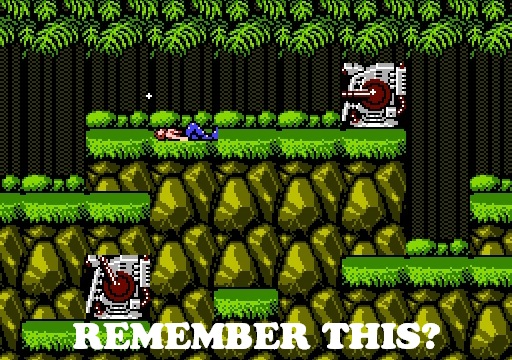
So what happened to the world of gaming that created this change to the overall difficulty of our games? The first and foremost answer to that question is technology—improvements in technology, specifically. Consider the technological limits of an 8-bit or earlier console: It was simply impossible to create a game that was very long. Even the length of Zeldas and Final Fantasies back then paled in comparison to today’s creations within those same series.
With that technological ceiling limiting the amount of content a developer can put into their game, there's only one effective solution to extend a game’s lifespan—make it as hard as humanly possible so that a player has to try over and over to succeed. But with more powerful consoles the ceiling was raised—we got bigger and bigger worlds and save points every ten minutes (which has further evolved into quicksaves at literally any moment).
In the era heralded by the arrival of the N64, Playstation, and Dreamcast, it all became about keeping the player occupied by giving them more to do; making things truly hard was lost as a priority because it was no longer a necessary component of replay value. These days there is virtually no technological limit to what a developer can put in a game, so there’s no need to make something hard to keep the player coming back.
With more powerful technology also comes with more freedom in how obstacles are designed. That's led to puzzles and boss fights in modern games that are less about powering through the difficult parts and more about figuring out the particular strategy or gimmick governing the encounter. And once you do, it's usually a breeze after that point.
Remember Psycho Mantis in MGS, The Sorrow in MGS3, or Vamp in MGS4? (Hideo Kojima really likes these gimmick fights). All of them are literally impossible to beat before you figure out the trick, and laughably easy afterward. While those may be some more extreme cases, just take a quick look at your modern game library and you're bound to recall all the bosses that revolve around figuring out the trick to exposing their weak point or preventing that big attack, mechanics that stand in stark contrast to retro boss fights in which you just had to survive a merciless onslaught in order to come out still barely breathing. You forever have my undying loathing, Dr. Wily.
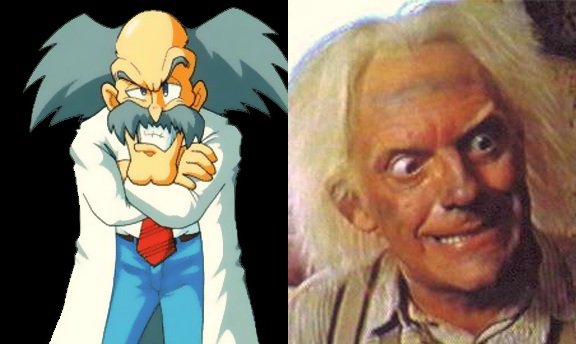
Another cause of gaming’s declining difficulty is the expansion of the industry itself. The group that usually labels themselves “hardcore gamers” (a title I use with distaste) has been on the decline among the total number of video game consumers. As the industry has gone mainstream we've seen the influx of casual gamers, who despite contributing to the widespread growth of the industry, have also caused a trend toward products that are tamer and less intense.
Many of these games are undoubtedly fun and I do enjoy them myself, but they are certainly nowhere near as hard as the games I grew up with. And they are perfect for the casual gamer, who isn’t willing to spend the time and effort to get past some maddeningly frustrating stuff for what he or she probably considers a marginal reward at best.
It's also important to keep in mind just how huge a component multiplayer is in today's games. With fighting games and first-person shooters leading the charge, most people get their kicks out of beating down real, live competitors rather than hit-or-miss, predictable AI. People look to competitive multiplayer for their challenge nowadays, which is a distinct shift away from hard single-player or co-op modes. It's unreasonable to expect developers to focus on putting challenge in a place that their customers don't care as much about anymore.
But the rest of us are still out there, that slowly dwindling group of gamers who ravenously eat up any challenges thrown our way and won’t stop trying until we triumph. For us the reward isn’t anything material; it's not the unlockable content, an alternate ending, or a secret message from the developers. That kind of thing is certainly a bonus, but wholly unnecessary. The real reward is internal, a sense of relief and exhilaration that can’t be adequately described until you’ve accomplished such a nigh-impossible task yourself. For a brief moment, you become utterly invincible (not unlike the effects of cocaine… or so I've been told).
I first got that rush when I finally beat the original NES Ninja Gaiden. I was still just a kid, but I had been continuously trying to beat the game since almost the first time I ever picked up a controller. It took nearly ten years of getting smacked around by bosses and falling down bottomless pits, but the high I got from seeing the simple, paltry ending screen after all that time made it all worth it. I don’t think I’ll ever experience another moment in gaming that will ever match that feeling. And it felt that great only because it had been so damn hard.
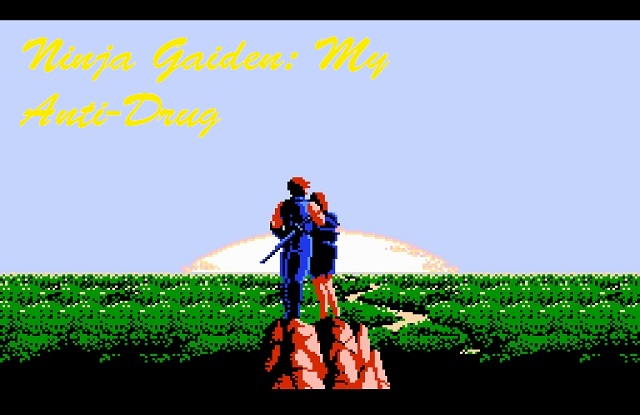
Obviously, the world has changed to the point where not every game can or should be that hard anymore. The industry is stronger than ever and we’ve got some great products that are a blast to play, even if they are on the easy side. But I hope that between all of the epic adventures and casual-friendly creations, we continue to see at least a trickle of games with that good old mind-numbingly hard challenge. For my money, there’s nothing quite as sweet.
